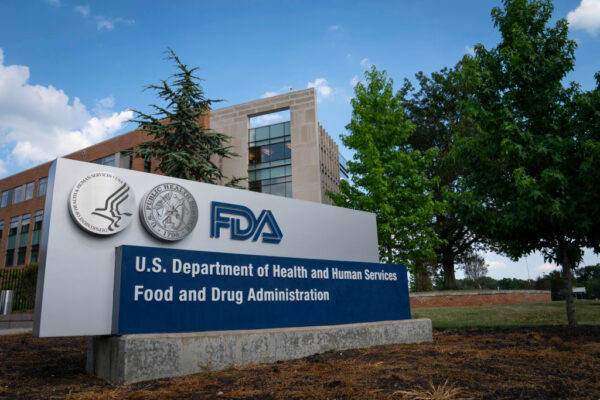
For the second time this year, the FDA has approved a nonprescription naloxone nasal spray to counteract the effects of opioid overdose. The latest regulatory decision is for a product from Harm Reduction Therapeutics.
Harm Reduction, a nonprofit pharmaceutical company founded in 2017, claims that not having a profit motive allows it to focus on its mission of saving lives by making OTC naloxone available for free or at the lowest possible cost. The FDA approval now clears the way for Pittsburgh-based Harm Reduction to launch its product, which will be marketed under the name RiVive.

With the Rise of AI, What IP Disputes in Healthcare Are Likely to Emerge?
Munck Wilson Mandala Partner Greg Howison shared his perspective on some of the legal ramifications around AI, IP, connected devices and the data they generate, in response to emailed questions.
The FDA decision for RiVive is based on data from a study that showed the nasal spray achieves levels in the blood similar to an approved prescription naloxone product. Harm Reduction also provided data showing consumers understand how to use the drug safely and effectively without guidance from a clinician.
According to the FDA, more than 105,000 reported fatal overdoses occurred in the 12-month period ending in February 2023. These overdoses were primarily driven by synthetic opioids like illicit fentanyl, the agency said.
“We know naloxone is a powerful tool to help quickly reverse the effects of opioids during an overdose. Ensuring naloxone is widely available, especially as an approved OTC product, makes a critical tool available to help protect public health,” FDA Commissioner Robert Califf said in the regulator’s announcement. “The agency has long prioritized access to naloxone products, and we welcome manufacturers of other naloxone products to discuss potential nonprescription development programs with the FDA.”
RiVive’s approval comes four months after the FDA approved an OTC version of Narcan from Emergent BioSolutions, making that product the first nasal spray naloxone product available without a prescription. Emergent said at the time it expected OTC Narcan would become available by late summer. Harm Reduction said it expects RiVive will become available to U.S. harm reduction organizations and state governments by early 2024. Without specifying a price, it said the cost will be lower than other opioid antagonist nasal sprays.
It’s been a busy week for regulatory developments in the U.S. and Europe. Here’s a recap of some recent regulatory news highlights:
—Biohaven received an FDA refuse to file letter for troriluzole, an experimental treatment for spinocerebellar ataxia (SCA), a rare neuromuscular disorder with no approved therapies. The drug failed its Phase 3 study but a post hoc analysis showed more encouraging results in a subset of patients. Biohaven had sought approval for treating this subset of SCA patients. The FDA declined to review the application. Biohaven said it will request a meeting to discuss the FDA’s concerns.
—Octapharma’s Balfaxar, a drug that reverses the effects of the blood thinner warfarin, is now FDA approved for treating patients undergoing surgical procedures. But clinical trial results showed more complications and deaths in the study drug group versus the comparator arm. Balfaxar’s approval comes with a black box warning and a post-marketing requirement for a clinical trial to further assess the drug’s risks.
—Gilead Sciences drug Trodelvy is now approved in Europe for treating breast cancer in patients whose disease is classified as HR positive and HER2 negative, which is the most common type of breast cancer. The European Commission decision covers patients who have received endocrine-based therapy and at least two additional systemic therapies. The FDA approved Trodelvy for this indication in February.
—AstraZeneca drug Soliris, whose approved indications include the rare neuromuscular disorder generalized myasthenia gravis (gMG), is now approved in Europe for treating that disorder in children and adolescents. The antibody drug, developed by AstraZeneca rare disease subsidiary Alexion, is designed to block C5, a complement system protein whose excessive activity is associated with some autoimmune disorders.
—A drug that initially reached the market for controlling fleas and ticks in dogs and cats is now approved for treating Demodex blepharitis, an inflammatory eye condition in humans that’s caused by infestation of mites. The Tarsus Pharmaceuticals drug is an eye drop formulation of the oral veterinary product lotilaner. Tarsus will market its new drug under the brand name Xdemvy. FDA approval of the drug for Demodex blepharitis makes it the first drug authorized for the eye indication.
—Mirum Pharmaceuticals drug Livmarli is now approved in Canada. The drug was developed to treat the severe itching symptom associated with the rare liver disease Alagille syndrome. The FDA approved Livmarli for treating Alagille syndrome patients in 2021.
—An anthrax vaccine developed by Emergent BioSolutions received FDA approval. Cyfendus was developed to prevent anthrax disease in adults 18 to 65 who have been exposed to the pathogen. The two-dose intramuscular injection is given alongside antibacterial drugs. Emergent developed Cyfendus in partnership with the Biomedical Advanced Research and Development Authority. The vaccine joins an Emergent anthrax portfolio that includes the BioThrax vaccine and two treatments, Anthrasil and raxibacumab.
—Daiichi Sankyo cancer drug Vanflyta received FDA approval for treating acute myeloid leukemia (AML) in combination with chemotherapies. The approval also includes use of the drug as a maintenance monotherapy following consolidation chemotherapy. Vanflyta specifically treats AML patients whose disease exhibits FLT3-ITD mutations. The FDA also approved a companion diagnostic to identify this mutation in newly diagnosed AML patients.
—The European Medicines Agency’s Committee for Medicinal Products for Human Use issued a negative opinion on Krazati, a Mirati Therapeutics drug for advanced non-small cell cancer that carries a mutation called KRAS G12C. According to the company, the committee said the drug has a positive risk-benefit profile, but it does not fulfill certain requirements for a conditional marketing authorization. Mirati said it disagrees with the opinion and will request a re-examination. Krazati received accelerated FDA approval last year.
Photo: Getty Images, Sarah Silbiger














